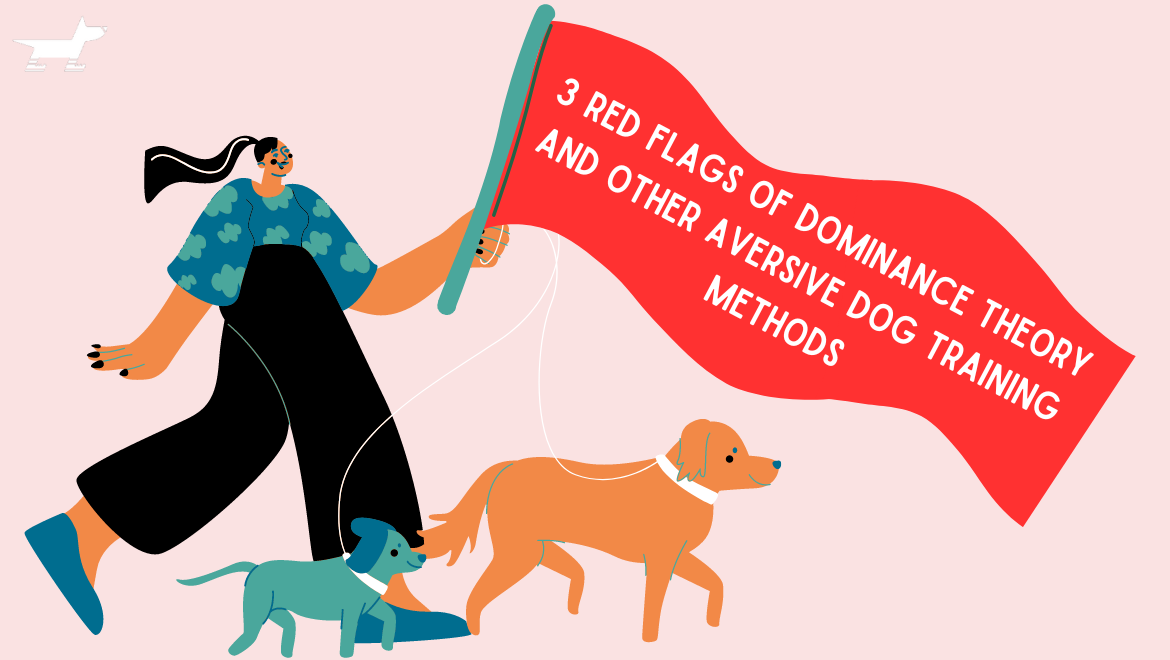3 Red Flags of Dominance Theory and Other Aversive Dog Training Methods in Edmonton, Alberta

Despite force-free training becoming more prevalent with the backing of dog training, behaviourist and scientific communities in Edmonton, Alberta there are still many trainers that follow Dominance Theory and other aversive training methods. In these methods, the emphasis is put on punishing undesirable behaviours so that your dog suppresses these behaviours. Here are 3 Red Flags to watch out for in these trainers and why they cause more harm to your dog and your relationship with him or her.
Setting your dog up for failure
- Aversive training methods include punishing undesirable behaviours, so unlike force-free trainers who will set you and your dog up for success, these trainers will put your dog in situations where they have an incredibly high likelihood of responding undesirably. Then they will follow your dog’s predictable undesirable behaviour with a punishment (yelling, pain, etc.). This puts unnecessary distress on your dog and ignores both the root cause of the behaviour and the function of the undesirable behaviour in the situation.
Aversive ratcheting is required
- Over time, if you are using aversive training methods, for the desired results to continue to be presented you will be required to continually increase the level of aversiveness. This is because in this method of training, you are not teaching your dog what is acceptable (as in force-free methods), so as they become accustomed to the punishment you use at the beginning it will become an ineffective punishment. This could look like starting to punish barking with a ‘no’, then down the line when that no longer works shaking a bottle of rocks is used. Plus the more aversiveness you use, the more damage it does to your dog’s mental health and relationship with you.
The emergence of other inappropriate behaviours and a lack of generalisation
- Each dog progresses along their training journey at different speeds and may hit some road bumps along the way no matter the methods used. However because the emphasis of aversive methods is to punish behaviours that are deemed inappropriate, your dog is not taught how TO behave in the situation. This makes for a very long and ineffective process that often leads to inappropriate behaviours being presented in different situations (ie. when the person who applies the punishment is not present), and other inappropriate behaviours being presented when your dog attempts to respond in a different way with no understanding of what is wanted. Not only does this make the process frustrating for you- the human- but it causes your dog to be frustrated, confused, fearful and otherwise contributes to poor mental health.
All in all, aversive methods including those based on dominance theory are outdated and do more harm to both your pup and your relationship with your dog. Alternative methods, such as force-free methods, are backed by scientific evidence and have been proven to be more effective, efficient and healthier methods of training. For more information, contact our force-free trainer with Dog Jogs here.